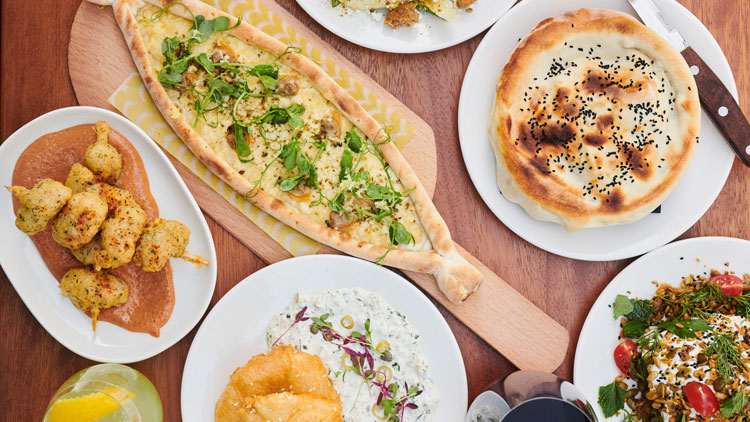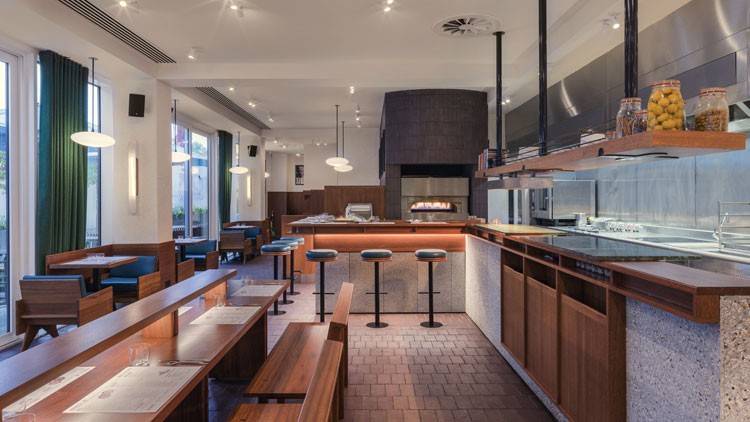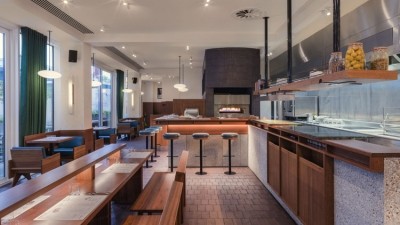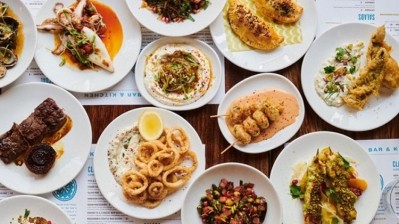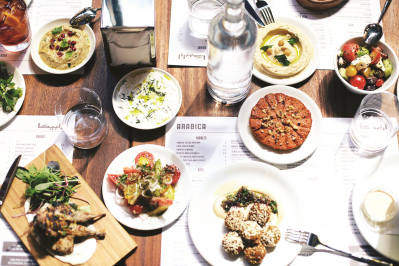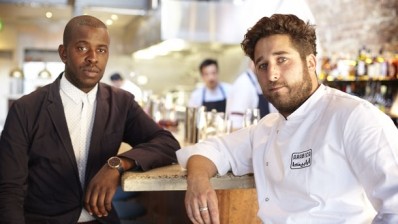Middle Eastern promises: James Walters on Arabica KX
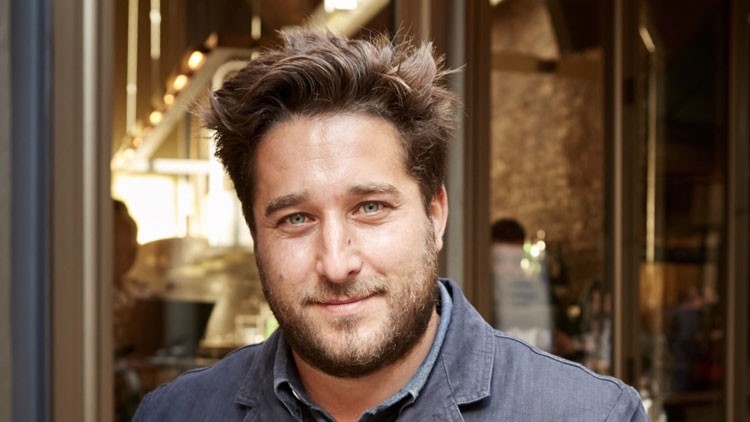
It’s five years since you opened the first Arabica restaurant in Borough Market. Why has it taken so long to launch a second one?
The delay was born out of my need to establish the foundations of the business. Arabica is a multifaceted operation; alongside the restaurants we have a retail arm, a wholesale department, and a catering division. When we opened Arabica Bar & Kitchen in Borough, I was overseeing the various elements of the business while also working as head chef in the kitchen. The restaurant was busy from the get-go, and I realised I needed a strong support structure around me if we were to take the business further and ensure we didn’t sacrifice any of the quality.
Tell us about Arabica KX
I see it as a representation of how I’ve changed, both personally and professionally. I was in my mid-30s when I opened the Borough restaurant, and it reflects that time of my life both in the menu and aesthetic. Now I’m in my 40s, and you can see a lot of how I’ve grown in the ways we’ve evolved the offering. Visually the King’s Cross site is more refined and comfortable; the sort of place I’d want to come and spend time in with my mates. I wanted to take some risks with the food too. Around 80% of the menu is new, and many of the dishes represent a much more contemporary approach to Middle Eastern cuisine.
How so?
Arabica Bar & Kitchen's menu grew from the food we served at the original Arabica market stall. It had a modern flair, but remained authentic to the flavour profiles of traditional Middle Eastern cuisine. Arabica KX is a departure from that. There are still nods to the Middle East, but it’s more playful and experimental. The Istanbul mussels are a common street food dish that we’ve paired with a rich walnut tarator sauce. The lamb frito is an offal-based dish I remember eating when I used to holiday in Majorca as a child, which I’ve combined here with a whipped tahini sauce inspired by one of my recent trips to Tel Aviv. We had the cooking on lock when we launched, and the reaction to the food so far has been brilliant.
Will you now look to change the menu at the Borough site?
No. Arabica Bar & Kitchen has a unique identity, and the differences at Arabica KX means it can continue to stand on its own individually. It’s a restaurant with so much character, and without it the business wouldn’t be where it is today; I don’t want that to be forgotten. We even still have the cheap school chairs, which we had to buy because we ran out of money, being used there.
Would you be open to expanding the Arabica restaurant brand any further?
Absolutely, but I want to do it under my own steam. I’m not interested in creating a cookie-cutter restaurant model that can be aggressively rolled out: I’ve had offers to do that in the past and rejected all of them. If and when we open another Arabica, I’ll look to evolve the concept again. Perhaps tightening the menu, and focusing more directly on a specific cooking style.
Arabica has its roots in street food culture, how do view the development of this market?
It’s interesting. When we started in Borough Market as a stall [around the year 2000], it was before hot food vendors even operated there. The reason that changed is because the market owners were exploring ways to increase the footfall on Friday lunchtimes, which subsequently spun into Saturdays and beyond. It’s great for consumers as there’s now so much variety. And for traders it’s an accessible way of launching a business, and a brilliant way to get immediate feedback on your food. But running a pop-up operation is incredibly tough, particularly as you’re constantly at the mercy of the weather. For many I think the goal is still to use street food as a jumping off point to opening a bricks and mortar site.
Do you think the street food scene will continue to grow?
I think it’s moving towards a saturation point, and where it goes from there is hard to tell. The landscape has changed so dramatically. 20 years ago, you could probably count the number of restaurants you thought were really pukka on your fingers. Now, though, there’s so much choice that customers could choose to eat out every night and never have to visit the same place twice. So you’ve got to make sure the offer remains fresh and exciting, and that’s what I think we’ve done with Arabica KX.
